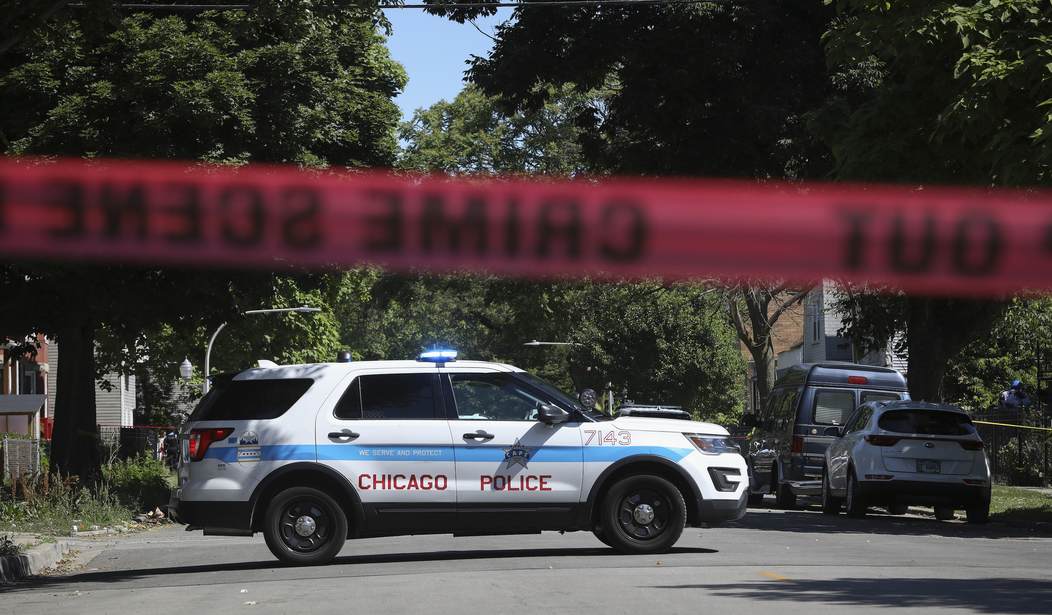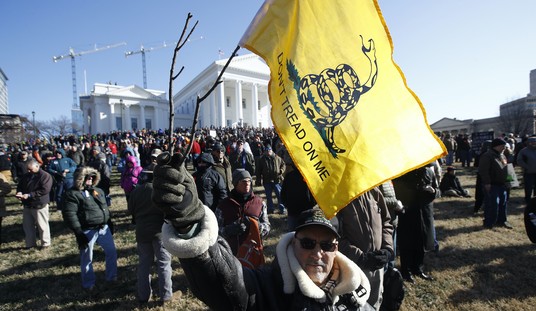Anti-violence programs like Chicago’s CeaseFire (not to be confused with the federal Department of Justice’s Operation Ceasefire) aim to prevent shootings by putting “violence interrupters” on the streets of high-crime communities. Typically the violence interrupters are guys who’ve had their own run-ins with the law, but who’ve supposedly embraced a better way of life; one that doesn’t involve gang violence and retaliation, or minor beefs that escalate into killings.
That street cred is important for violence interrupters to gain the confidence and respect of the high-risk individuals they’re seeking to counsel, but its also led to several CeaseFire employees getting arrested and/or fired over the past few years after they’ve been accused of continuing to take part in street gangs, drug deals, and even gun-running. The latest? Three anti-violence workers who were recently in Chicago’s bond court accused of illegally possessing guns while they were out on bond… for illegally possessing guns.
When Sendalio Williams, 25, appeared before Judge John Lyke on Saturday afternoon, it was the second time in four months that he stood in front of the same judge on a new gun charge. Prosecutors said cops watching a CPD surveillance camera feed Friday saw Williams pull a handgun out of a satchel and point it at a woman who appeared to be recording him on her phone.
Prosecutors said officers went to the scene, chased Williams, and found a loaded gun in his satchel.
Williams also appeared before Lyke on May 3. In that case, cops watching a CPD surveillance camera feed allegedly saw him fire a gun and jump into a black SUV. Police pulled the car over and allegedly found a gun in the trunk behind him. Prosecutors said he admitted to police that he fired the gun in the direction of two other men.
He was charged with aggravated discharge of a firearm and aggravated unlawful use of a weapon. Lyke ordered Williams to pay a $1,000 deposit to get out of jail on electronic monitoring in the May case, but another judge nixed the ankle monitor requirement at a later hearing, court records show.
On Saturday, after Williams was charged with a fresh unlawful use of a weapon case, his defense attorney told Lyke he studied criminal justice at Westwood College and “works with CeaseFire to educate kids about gun violence.” He’s been with the group for about two months, the attorney said.
Lyke ordered Williams held without bail for violating the terms of bond in the May case and set bail on the new gun charges at $80,000. Williams will need to post $8,000 and go onto electronic monitoring after his no-bail hold is cleared up, Lyke said.
If Williams has only been with CeaseFire for a couple of months, it raises the question of whether the group was aware of his arrest in May when they hired him. It’s one thing to look for guys with personal experience with the criminal justice system to work as violence interrupters, but you’d think that CeaseFire would want individuals who have turned a corner and not someone who’s actively facing a felony charge.
In addition to Williams, 41-year old William Jenkins, who told the court that he’s been working to cut down on shootings for the past two years, appeared before a judge on a charge of possessing a firearm as a prohibited person. Jenkins got a 20-year sentence back in 1999 for attempted murder, but since his release from prison he’s been arrested twice in possession of a firearm.
The third anti-violence worker to appear in Chicago’s bond court in recent days was Darnell Hite, who was taken into custody after police spotted the butt of a pistol sticking out of a bag during a traffic stop. Unlike Jenkins, Hite doesn’t appear to be disqualified from owning a firearm, but neither does he have a FOID card or a concealed carry license, which means he’s facing a felony charge of unlawful use of a weapon; his second actually, since he was also arrested on the same charge back in November of 2020.
I’m all in favor of thinking outside the box when it comes to reducing violence, but there’s a reason why I prefer Operation Ceasefire to Chicago’s CeaseFire program. Operation Ceasefire also uses community outreach, but unlike the Chicago CeaseFire effort, it also has a policing and law enforcement component that refers at-risk individuals who don’t take advantage of the opportunity to change to federal prosecutors. The names of the programs may be similar to the point of confusion, but the tactics and strategies deployed are quite different, and I believe that not only is Operation Ceasefire more effective at reducing shootings, it tends to come with more oversight. Clearly, given these recent arrests, that oversight is important.. at least if you want to avoid embarrassing headlines about violence interrupters getting busted for things like illegal gun possession.









Join the conversation as a VIP Member